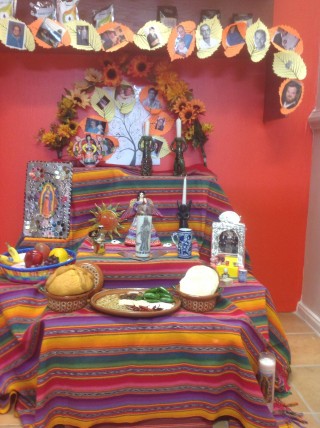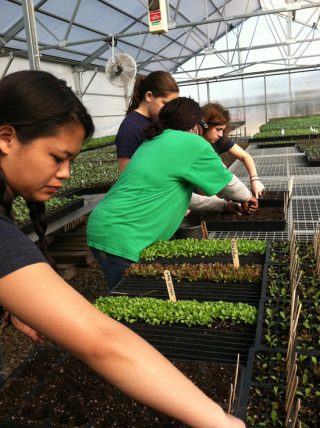Connecting students to their local environment and community is an effective way to infuse learning with immediacy, relevance, and an expanded sense of possibility. Experiential learning weeks—or “spring intensives”—that help our freshman and sophomore classes take advantage of all that the city of St. Louis has to offer are the most recent examples of such “place-based learning.”
For the freshmen, says Director of Experiential Education Charley Martin, the aim was “to introduce students to the city of St. Louis in a way that allowed them to better understand the community, the people who live and work there, and its inherent challenges and broad possibilities.”
The program began with attendance at a Sunday service at a local city church, after which students stayed overnight at a local YMCA. Each weekday morning started with a class and discussion at the midtown-area Missouri School for the Blind, after which groups split off to delve into their topic areas—art, science, government, or homelessness. One day, students and chaperones explored the city using only public transportation and participated in an Urban Adventure Scavenger Hunt that took them to a variety of city landmarks.
In the sophomore class, each student helped design his or her own personalized experiential week—choosing from a wide menu of learning and service options. The aim, says program leader Don Sterrett (US’95), was to provide a structure within which the students could explore higher education, careers, and service opportunities in and around the city—while considering their goals and how best to achieve them. Their visits and activities included the following:
• Businesses, nonprofits, and government institutions
• Campuses such as Washington University in St. Louis, the University of Missouri (in Columbia), and Maryville University
• Community service organizations
After the experience, all students delivered presentations about the week’s activities and what they had learned.


